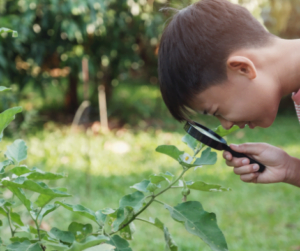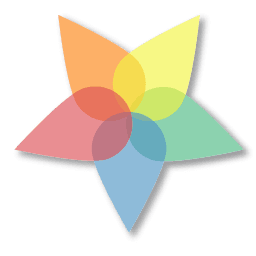Did you know that the neurodiverse brain has a different developmental pattern than a neurotypical brain? And that development pattern is not served well at all by the current educational emphasis on reading and math in the early years? It is true. If your child has ADHD, ASD, dyslexia, or many other diagnoses that label them as neurodivergent, they may benefit from a different educational pattern than the dominant one in America today.
Recognizing the difference.
 In most schools, there has been a move to focus more and more on reading, writing, and math in the early years. For neurotypical kids, these can be foundational to learning other topics, but not for neurodiverse kids. This issue means that neurodiverse kids are being labeled as failures early when they really aren’t. They just have a brain that wants to learn in a different pattern. They may even need longer for their hand-eye coordination and other brain-based skills to develop that are needed for reading and writing!
In most schools, there has been a move to focus more and more on reading, writing, and math in the early years. For neurotypical kids, these can be foundational to learning other topics, but not for neurodiverse kids. This issue means that neurodiverse kids are being labeled as failures early when they really aren’t. They just have a brain that wants to learn in a different pattern. They may even need longer for their hand-eye coordination and other brain-based skills to develop that are needed for reading and writing!
What is that pattern they do best with? Neurodiverse brains want to make sense of the world around them first and foremost. These children often do best learning social studies, science, and history first. They want to soak up facts like “Why are polar bears white?” Where does snow come from?” or “How do trains work?” Their brains are seeking actual knowledge they can use. This is why I wrote Wonderful World the way I did, to teach the things kids want to learn.
It’s okay to wait.
 This brain development pattern doesn’t mean these kids can’t learn to read, write, and do math, and some of them excel at those things early. However, they often do best if we let them learn those skills more slowly. Waiting until age 6 to start introducing them and then letting them work slowly for a few years. Many of them will be ready to work harder on those skills closer to age 8 and catch up to their peers in middle school.
This brain development pattern doesn’t mean these kids can’t learn to read, write, and do math, and some of them excel at those things early. However, they often do best if we let them learn those skills more slowly. Waiting until age 6 to start introducing them and then letting them work slowly for a few years. Many of them will be ready to work harder on those skills closer to age 8 and catch up to their peers in middle school.
Unfortunately, most schools and curriculums do not recognize this alternative path as valid. They label kids as behind or failing in reading and don’t challenge them in the areas they are ready to learn about. Because this interest in history, social studies, and science, can mean that your neurodivergent child has knowledge in subjects several years more advanced than their peers in those areas. All they need is encouragement and opportunities to learn in those areas. But because neurotypical kids learn those things later, many programs don’t even teach those subjects during the early years.
You’ll get there eventually.
 If you want your child to be successful in life, figure out what they are ready to learn, and teach them that. Ignore the fact your public school wants 5-year-olds to read 200 words, and instead explore what is at the bottom of the ocean or how planes fly. Feed their brain the knowledge it is ready for, even if it isn’t what neurotypical kids are learning. There is time in your child’s education to teach them everything. They don’t have to be ready for college until they finish high school. That means that they can learn everything they need to know in the “wrong” order and still be ahead when they graduate.
If you want your child to be successful in life, figure out what they are ready to learn, and teach them that. Ignore the fact your public school wants 5-year-olds to read 200 words, and instead explore what is at the bottom of the ocean or how planes fly. Feed their brain the knowledge it is ready for, even if it isn’t what neurotypical kids are learning. There is time in your child’s education to teach them everything. They don’t have to be ready for college until they finish high school. That means that they can learn everything they need to know in the “wrong” order and still be ahead when they graduate.
The best thing you can do for your neurodivergent child is to stop asking them to force their brain to do things it doesn’t want to do and honor what it does want to do. Follow their lead. Teach what they want to learn and remove from your vocabulary words like “behind” and “ahead” and just let your child learn.





0 Comments